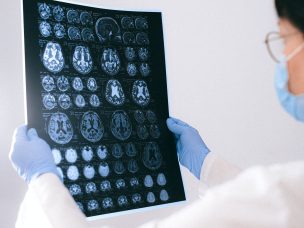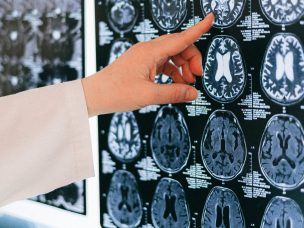Neurology
Alterations in Signaling and Interactions of Astrocytes in Multiple Sclerosis
A literature review evaluated recent findings regarding changes in signaling modalities and interactions of astrocytes in multiple sclerosis. Multiple sclerosis (MS) is a chronic demyelinating disease of the central nervous system (CNS). Astrocytes, the most abundant CNS glial cells, are critical for CNS health and function and have, therefore, gained attention for investigation in MS. ...
Cognitive Effects of Neurofilament Levels and Brain Atrophy in Multiple Sclerosis
Brain MRI volumetric measurements are a better predictor of cognitive performance than neurofilament light chain levels in multiple sclerosis, according to a recent 10-year follow-up study. Cognitive impairment is an important factor in disability due to multiple sclerosis (MS). The neurofilament light chain (NfL) is a promising biomarker for neuroaxonal damage. Research has correlated increased...
Lower Urinary Tract Symptoms and Dehydration in Progressive Multiple Sclerosis
Lower urinary tract symptoms are associated with inadequate hydration in progressive multiple sclerosis, according to a recent prospective study. Lower urinary tract symptoms (LUTS) are very common in people with multiple sclerosis (MS). The prevalence of self-reported LUTS is approximately 68% in MS patients. LUTS can be disabling and affect the quality of life in...
Motor Sleep Inertia and Motor Wake Inertia Dissipation in Early Relapsing–Remitting Multiple Sclerosis
Patients with early relapsing–remitting multiple sclerosis display a more marked motor wake inertia than healthy controls. Sleep inertia is the transitional state between sleep and wake, characterized by impaired performance, reduced vigilance, and a desire to return to sleep, while motor wake inertia is the motor activity pattern during the transition between wakefulness and sleep....
Autologous Hematopoietic Stem Cell Transplantation Versus Alemtuzumab in Multiple Sclerosis
Autologous hematopoietic stem cell transplantation was found to be superior to alemtuzumab in controlling disease activity and improving cognition and quality of life in multiple sclerosis in a recent observational cohort study. Multiple sclerosis (MS) is an autoimmune neurological disease affecting approximately 2.8 million people worldwide. Autologous hematopoietic stem cell transplantation (aHSCT) is a highly...
HLA-DR15 and MERTK Interaction Influences Monocyte Profile in Multiple Sclerosis
A recent case–control study found that HLA-DR15 and MERTK genotypes influenced the proportions of MERTK-expressing monocytes in multiple sclerosis. Multiple sclerosis (MS) is a demyelinating autoimmune disease of the central nervous system. Genetic and environmental factors are implicated in the etiology of MS. HLA-DRB1*15:01 (DR15) and MERTK are two genes associated with the risk for...
Patients With Dementia Less Likely to Receive Intensive Care After Hospital Transfer
Authors say future work should focus on determining if transfers are needed Patients with Alzheimer disease and other related dementias (ADRD) are less likely to receive intensive care unit admission or procedures after transfer from an emergency department to a tertiary care hospital, according to a study recently published in Alzheimer’s & Dementia: Diagnosis, Assessment &...
Radon Exposure Linked to CHIP Risk for Women With Ischemic Stroke
Higher estimated risk for clonal hematopoiesis of indeterminate potential seen for those with ischemic but not hemorrhagic stroke Radon exposure is associated with an increased risk for clonal hematopoiesis of indeterminate potential (CHIP) among postmenopausal women with ischemic stroke, according to a study published online Jan. 3 in Neurology. Kurtis M. Anthony, M.P.H., from the Gillings...
NMOSD: An Early Diagnosis to Prevent Blindness and Paraplegia
The early and accurate identification of neuromyelitis optica spectrum disorder is integral to the prognosis and reduction of relapses. Treatment and management strategies include immunosuppressive agents, steroids, and novel monoclonal antibodies. Neuromyelitis optica spectrum disorder (NMOSD) is an autoimmune disorder mainly involving the optic nerve (optic neuritis) and the spinal cord (myelitis). Prompt and early...
More Medical News














